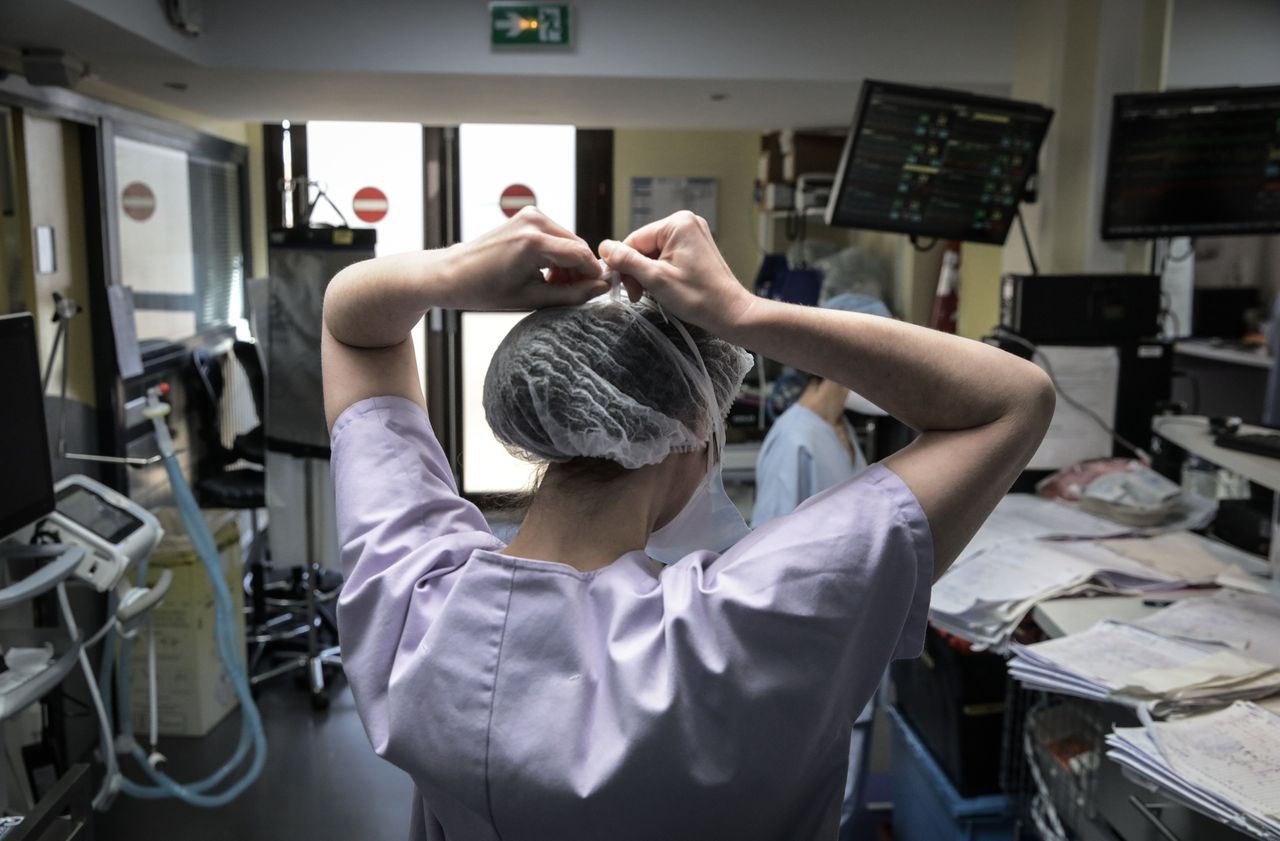When he cracked a tweet to sound the alarm on the health situation in his department, Professor Dominique Rossi, head of the urology service of the Assistance Publique-Hôpitaux de Marseille (AP-HM ), perhaps did not imagine that his alert would make so much noise.
But the health crisis continues to affect the daily life of the French and the fear of a "second wave" remains persistent.
All eyes are now on the Bouches-du-Rhône department.
Since mid-August, it has been part of the territories classified in red, those in which the virus is actively circulating.
"Major tension for 24 hours on the resuscitation beds in the Bouches-du-Rhône," wrote the professor in his tweet published on Sunday.
“It is not easy for the general public to fully understand the figures of the epidemic, he explains to the Parisian.
We must call for the responsibility of the greatest number to control the epidemic.
"
Major tension for 24 hours on the emergency beds in the BDRhone. 😨😥 Preserve our hospital capacities 🙏 by applying barrier measures.
HELP !!
We need you to contain the tide.
@aphm_actu is on the bridge 24/24 with the care establishments @ARSPaca https://t.co/JSU26ykBTu
- Dominique Rossi (@PrDRossi) September 6, 2020
The figures, precisely, worry the authorities.
From the beginning of August, the department saw the number of new contaminations grow much faster than the national average.
And in recent days, it is the increase in the number of patients treated in intensive care units that is following the same path.
According to the latest figures sent on Monday by the Regional Health Agency in Paris, they were 61 in the Bouches-du-Rhône, more than 10% of all resuscitations in France.
For two weeks, the curve has taken a much steeper path than that of the other departments.
Result: the number of places available and dedicated to Covid-19 patients can now be counted on the fingers of two hands.
“We have 300 resuscitation beds in the department.
Of this total, 70 are intended for Covid patients, specifies Dominique Rossi.
As for AP-HM, 25 of the 120 intensive care beds are dedicated to covid-19.
"
This is the whole difficulty of the moment.
Because the country is no longer confined, and intensive care admissions do not only concern contamination with the new coronavirus.
“When they were confined, people didn't break their legs, they didn't drown, they didn't have a car accident,” continues Prof. Rossi.
Today, this is the case and we must take care of them.
Patients have postponed treatment and we have some catching up to do.
"
Newsletter - Most of the news
Every morning, the news seen by Le Parisien
I'm registering
Your email address is collected by Le Parisien to enable you to receive our news and commercial offers.
Learn more
At this stage, the tension within the resuscitation services does not therefore amount to a single explosion of Covid cases, which does not take away from the urgency of the situation on the spot.
The patients hardest hit by Covid are still the same.
These are the most fragile populations, starting with the elderly and those with co-morbidities.
Across the PACA region, 89% of patients admitted to intensive care units are over 50 years old.
“The virus circulated all summer and the increase in cases is the consequence, analyzes Mircea T. Sofonea, lecturer in epidemiology of infectious diseases at the University of Montpellier (Hérault).
There was a relaxation among the young people, understandable after confinement.
After a while, the older ones are not spared.
"
"The virus is circulating everywhere"
Our specialist is now sweeping away certain arguments developed at the beginning of the summer.
“Some say the virus has changed, but this argument has no scientific basis,” he argues.
All the ingredients are there.
We relive the months of February and March, but four times slower.
"
Why the Bouches-du-Rhône?
The question is eminently complex, as the virus still conceals mysteries that scientists are struggling to unravel.
Still, the incidence rate (the number of cases detected per 100,000 inhabitants) is more than three times higher than that of the national average, at nearly 180. “We are talking about a region, a department and a city, Marseille, which were not very affected by the first wave, notes Mircea T. Sofonea.
The back-to-school context can also play a role, as well as the specificities of this coastal area, which welcomed holidaymakers this summer.
"
"If we let it happen"
For him, the situation there could very well be reproduced elsewhere.
“I'm not saying that Marseille portends a second wave as intense as the first.
But if we let it happen, the virus will circulate more strongly in large cities, including those which were less affected last March, such as Bordeaux and Toulouse.
Others are already anticipating a sharp deterioration in the situation.
"It is obvious, the large metropolises are going to be hit, we are not going to cut it", forecasts François-René Pruvot, Lille president of the conference of presidents of medical community of CHU establishments, near the World.
Contacted, the cabinet of Olivier Véran, Minister of Health, said he was monitoring the situation closely.
“There is extreme vigilance around what is going on there, we develop.
We hear the messages of the doctors on the spot but the hospital pressure is not comparable to what we have known ”.
And remember that "we went from 7,000 to 12,000 places available in intensive care".
But these places are obviously not all near Marseille.
To the point that if the situation were to worsen further, the authorities no longer exclude, according to our information, possible transfers of patients.
Very bad memories.









